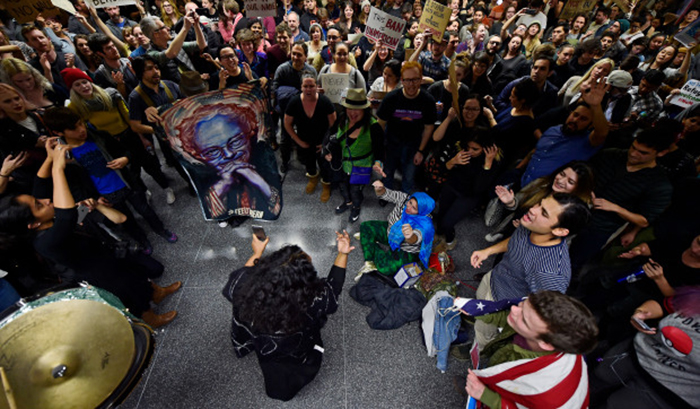[Editor’s Note: In part three of his For Great Schools series, Scott McVarish, co-founder of the United Parents of Culver City, interviews School Board member Sue Robins. A former teacher, she talks about science labs, professional development, career paths for students and strengthening the connection between Culver City schools and businesses. See www.facebook.com/forgreatschools]
Mr. McVarish: Sue Robins has been on the Culver City School Board for 18 months. She was a teacher at Culver City Middle School for six years. I am interested in your perspective as a former science teacher about the modernization of our science labs and what it means for the students of our school.
Science Labs
Ms. Robins: One of the things I spoke about quite a bit during my campaign was the importance of having a staff person working in the El Rincon laboratory. It’s a beautiful facility, incredibly well developed, and it has great resources and tools for teachers. But it needs a person to set up the labs and tear down the labs and plan the labs. It is not realistic to expect an elementary school teacher with his or her 22- 28 students to have an opportunity to leave the room and go set up a lab and then have the kids come in and do the lab and then clean it up and go back to the classroom.
Mr. McVarish: What could possibly go wrong with a bunch of chemicals?
Ms. Robins: (Laughing). There are not a lot of chemicals used at the elementary level. But certainly there is a fair amount of setup of a lot of the manipulatives and the tools and machines we use. It was critical that we have a staff person in there. Now we do. That resource is being used extensively in the way it was intended to be used. There is a drastic need for STEM-focused students. This exposure at the elementary level helps students to understand what types of things science involves. One of my favorite things that would happen when I was a science teacher is thatr students would say, “Ms. Robins, I don’t like science.” I would say, “You can’t say you don’t like science. That is like saying you don’t like food because you don’t like broccoli. There are so many different kinds of science. There is bound to be one that does pique your interest.” The benefit of providing excellent science education at the elementary level is that students become exposed to the wide variety of scientific endeavors that there are. Hopefully, they will become inspired to pursue a career in STEM.
Mr. McVarish: Is this lab just for El Rincon because it’s a Science Technology Engineering Mathematics (STEM) school? Or are other schools benefiting from it? When do parents get to see it?
Ms. Robins: That is a great question. Maybe we can create an opportunity for parents to see it. It is open during Open House Night. Anyone can go there during that event. Right now it is being used primarily by the El Rincon students, not other schools because it’s not realistic to shuttle students around. You can do an awful lot of elementary level science in your own classroom. We want to provide technological resources and actual tools and manipulatives in all of the elementary schools.
Mr. McVarish: The federal government gives extra benefits to foreign nationals seeking to work in the United States if they have a STEM background. The demand for jobs is so high for people who have STEM backgrounds that we can’t fill it with the current level of students graduating from our schools. There is not a single other industry in the United States like STEM that gets such a high demand that we have to seek workers outside of the United States. The jobs are there. The careers are there. We just have not produced enough STEM graduates, and it looks as if our El Rincon students might be the beneficiary of that in the future.
Ms. Robins: Our science labs at the high school are 30, 40 years old. They are not in good shape. They have been ignored for the most part since they were built. We need to provide the teachers with the tools they need to teach science as it is now. Science is different now. You can’t just teach it with baking soda and vinegar anymore. One way we can assure that we serve the needs of all students is by starting with improving science labs at the high school. That has two phases to it. The short-term phase will happen in the summer, which is mostly repairs like clearing out the sinks that have been clogged for years and making sure the plumbing is working, ensuring that they have the electrical capacity to run any of the appliances and tools that they need to run in the classroom. Longer term, we are looking at much more significant types of projects, which might even include new construction of science facilities designed for the way science is done right now. The rooms need to be very adaptable with modular seating so we can adapt to different sizes of classes, different groupings, different types of activities that they would need to be doing. They also need to have full integration of technology and the internet. There needs to be electricity available to every group in the room. There needs to be water available, especially for biology and chemistry laboratories. This has not come to the School Board yet, but my discussions with the administration of the District indicate that science labs should be designed recognizing the needs of the curriculum and building the room to accommodate those needs.
(To be continued)
Mr. McVarish may be contacted at scott@forgreatschools.org and facebook.com/forgreatschools






